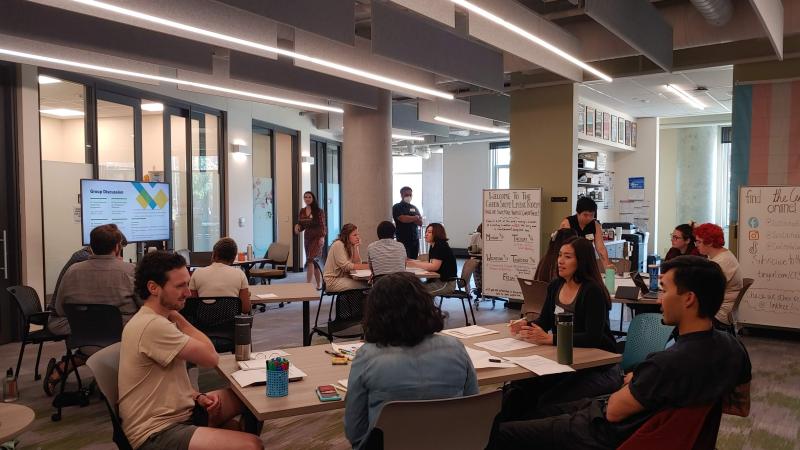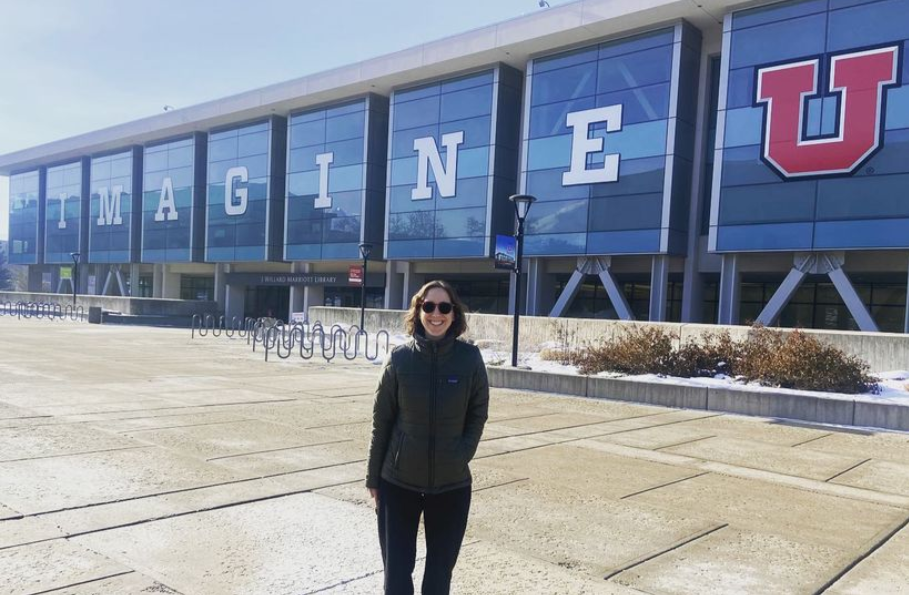Graduate Community of Practice Reflection
By Erin Lammott, GIS, MS

The 2022-2023 CCESL Community Engagement Graduate Community of Practice provided a great forum to understand more about community-engaged scholarship and envision what it might look like to use the methods and approach in my master's capstone project. Being new to the field of research and GIS, community-engaged scholarship was introduced to me as an approach to qualitative research methods in projects about social justice. Ultimately, although my capstone project is not going to be utilizing community-engaged methods, this group benefited me in three tangible ways. It provided role models, helped me hone project ideas, and taught me how I might be able to use community-engaged practices even within a technology project.
First, it served as a model for setting the expectations of conscientiousness, humility, and centering of community voice. It was nice to regularly have a space for discussion with thoughtful group members whose default settings were to consider power dynamics, demonstrate respect, and maintain the dignity of research participants. Their influence inspired me to strive to achieve a high level of rigor in my research and a high level of solidarity in my relationships.
Second, the group helped me brainstorm a number of capstone project ideas. Hearing their projects, talking about my leads, and discussing hesitations or potential roadblocks was a necessary step for me. They provided an open environment with fresh perspectives outside of my own department. Additionally, this group was helpful in project conceptualization and design. With each conversation, the group reinforced the importance of centering the community voice in all facets of a project – from forming a project team to project content to methods to closure (if there is a certain closure of the project). Understanding the need to build rapport and conscientiousness of power dynamics with the project team, within this project’s context, helped me to build that time into the project schedule.
Lastly, because my project will be building a couple technical products, I will not be using primarily community-engaged methods. However, this group showed me that even in the building of technical products, awareness of the value provided to research through community-engaged methods is critical. I will be mindful going forward that, though I am building my products for academic end-users, those end-users' goal is to advocate for the community. It is critical to the success of my project to continue centering the community voice even though I may not be directly interacting with them.
The insights and environment provided by this Graduate Community of Practice cushioned and enhanced my first year of graduate school. It has set a foundation for my capstone project and the rest of my time here at DU.
